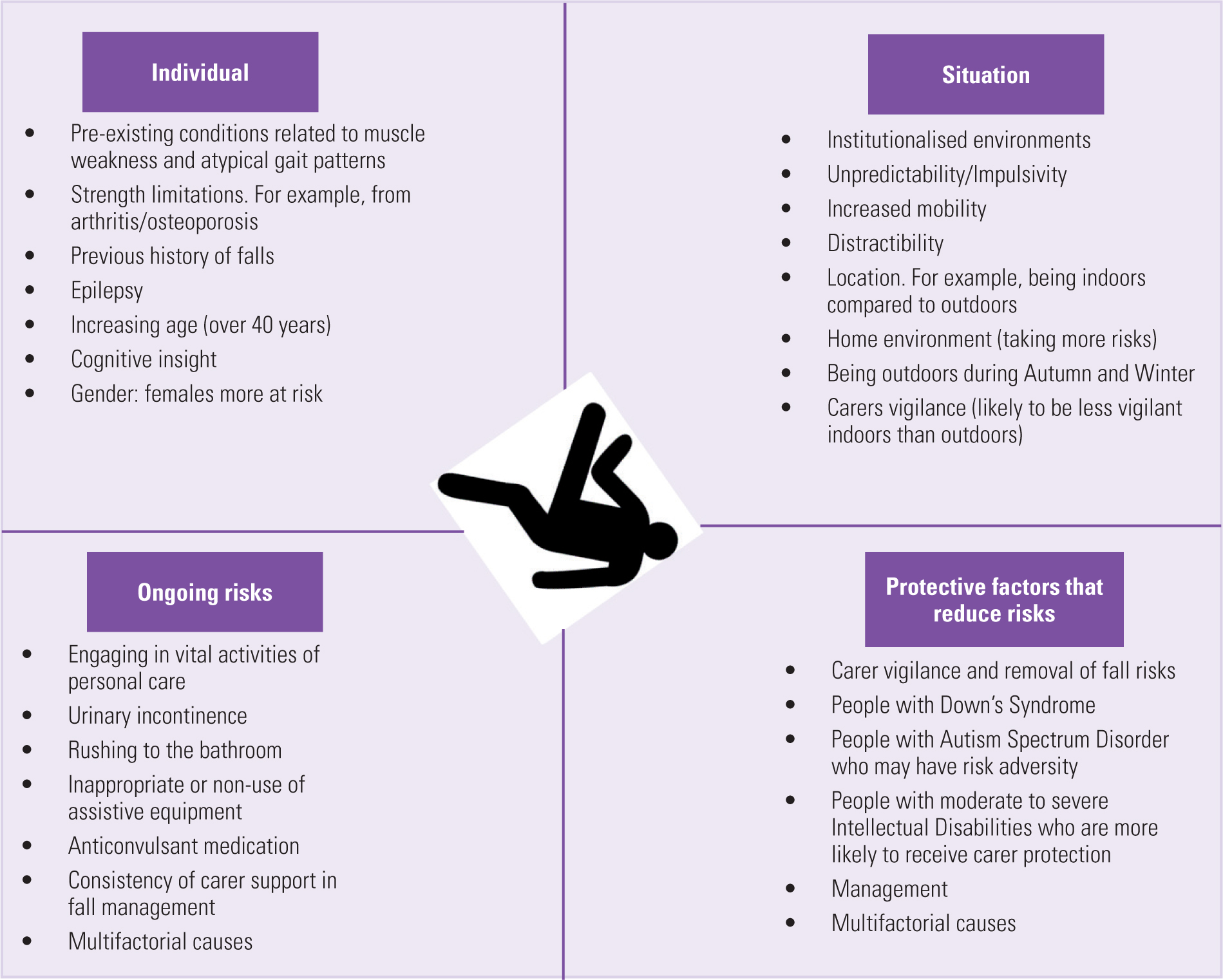The Main Principles Of Dementia Fall Risk
The Main Principles Of Dementia Fall Risk
Blog Article
5 Easy Facts About Dementia Fall Risk Shown
Table of ContentsDementia Fall Risk - TruthsThe Definitive Guide for Dementia Fall RiskAbout Dementia Fall Risk5 Simple Techniques For Dementia Fall RiskExcitement About Dementia Fall Risk
The FRAT has 3 sections: fall risk condition, risk variable checklist, and action strategy. An Autumn Risk Standing includes information concerning background of recent drops, drugs, psychological and cognitive condition of the person - Dementia Fall Risk.If the individual scores on a risk factor, the corresponding number of factors are counted to the individual's loss danger score in the box to the far ideal. If a patient's fall risk score totals five or greater, the person is at high danger for falls. If the client scores only four points or reduced, they are still at some risk of falling, and the registered nurse needs to utilize their finest medical analysis to manage all autumn danger aspects as component of an alternative care plan.
These typical approaches, generally, help develop a secure atmosphere that decreases accidental drops and defines core precautionary measures for all people. Indicators are important for patients at threat for drops. Doctor require to recognize who has the problem, for they are accountable for executing actions to advertise person security and prevent falls.
The Basic Principles Of Dementia Fall Risk
For example, wristbands need to include the client's last and given name, day of birth, and NHS number in the UK. Information need to be printed/written in black versus a white background. Only red color needs to be made use of to signify special person status. These referrals follow current advancements in patient recognition (Sevdalis et al., 2009).
Items that are too much may need the client to get to out or ambulate unnecessarily and can potentially be a risk or add to falls. Aids avoid the patient from going out of bed with no support. Nurses react to fallers' call lights quicker than they do to lights started by non-fallers.
Visual impairment can significantly trigger drops. Hip pads, when worn appropriately, may reduce a hip crack when fall occurs. Keeping the beds closer to the floor reduces the threat of falls and major injury. Positioning the bed mattress on the flooring substantially minimizes fall threat in some medical care settings. Low beds are created to decrease the distance a client drops after relocating out of bed.
Some Known Details About Dementia Fall Risk
Patients that are high and with weak leg muscle mass that try to remain on the bed from a standing position are most likely to drop onto the bed because it's also reduced for them to reduce themselves securely. If a tall patient efforts to get up from a reduced bed without assistance, the patient is likely to drop back down onto the bed or miss out on the bed and drop onto the flooring.
They're made to advertise prompt rescue, not to protect against drops from bed. Aside from bed alarms, boosted guidance for high-risk people also may assist stop drops.

Individuals with an evasion gait boost autumn chances significantly. To decrease fall risk, shoes must be with a little to no heel, thin soles with slip-resistant step, and sustain the ankles. Advise client to use nonskid socks to avoid the feet from gliding upon standing. Nonetheless, urge people to use ideal, well-fitting shoesnot nonskid socks for ambulation.
About Dementia Fall Risk
In a research, homes with appropriate lighting report less falls (Ramulu et al., 2021). Renovation in lights at home may decrease More Help fall prices in older grownups.

Sitters work for assuring a protected, secured, and secure setting. Researches showed extremely low-certainty evidence that sitters decrease loss threat in severe care health centers and just moderate-certainty that alternatives like video tracking can reduce caretaker use without enhancing fall threat, recommending that sitters are not as beneficial as initially believed (Greely et al., 2020).
The Greatest Guide To Dementia Fall Risk

Raised physical fitness decreases the threat for drops and restricts injury that is suffered when loss takes place. go to the website Land and water-based workout programs might be likewise beneficial on equilibrium and stride and therefore minimize the risk for drops. Water exercise might contribute a positive advantage on balance and stride for women 65 years and older.
Chair Increase Workout is a straightforward sit-to-stand exercise that aids enhance the muscles in the thighs and butts and boosts flexibility and self-reliance. The objective is to do Chair Rise workouts without using hands as the client comes to be stronger. See sources area for a comprehensive guideline on how to execute Chair Rise workout.
Report this page